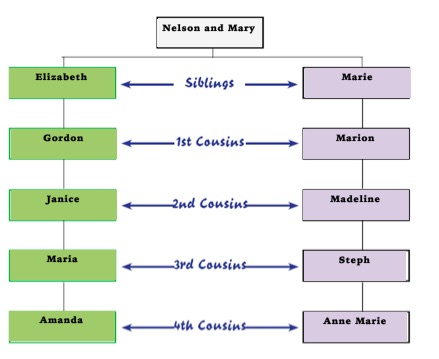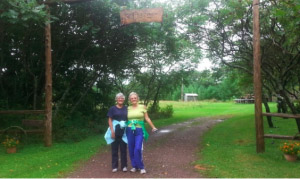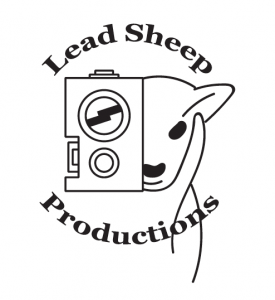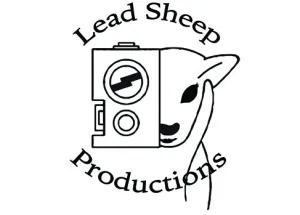How are we related? An explanation of 2nd Cousins once removed.
As we gather for the holidays, we will be spending time with family: parents, siblings, grandparents, and “cousins”. One of the questions I am asked most is about cousins? What is a 1st or 2nd cousin and what’s with the whole “removed thing”?
The first thing you need to know is your common ancestor.
If you share parents…you are siblings
If you share grandparents…you are 1st cousins
If you share great-grandparents…you are 2nd cousins
If you share great-great-grandparents….you are 3rd cousins
and so on…
The whole “removed thing” is to denote different generations. How is my 1st cousins’ son related to me? Our common ancestors are my grandparents but his great-grandparents. You start with the closer relationship, in this case, grandparent, making him my first cousin, and then you “remove” the relationship one generation, first cousin once removed. His child would be my first cousin twice removed.Here is another example. The picture below is my grandmother, Janice, and her “cousin” Steph at the old farm which has been in our family for generations. It was owned by Steph’s great-grandparents and its where my grandmother’s grandparents meet. It’s very cool that it is still in our family and I believe part of the reason we are still connected. Their common ancestors are Nelson and Mary. They are my grandmother’s great-grandparents and Steph’s great-great-grandparents.
So how are they related?
Great-grandparents, the closer relationship, means 2nd cousins, the extra generation makes them once removed.
Can you figure out how I am related to Steph?
Still a bit confused? Here is an example of how to map out the generations to figure out the answer.


My Grandma Janice and Cousin Steph at “The Old Farm”



